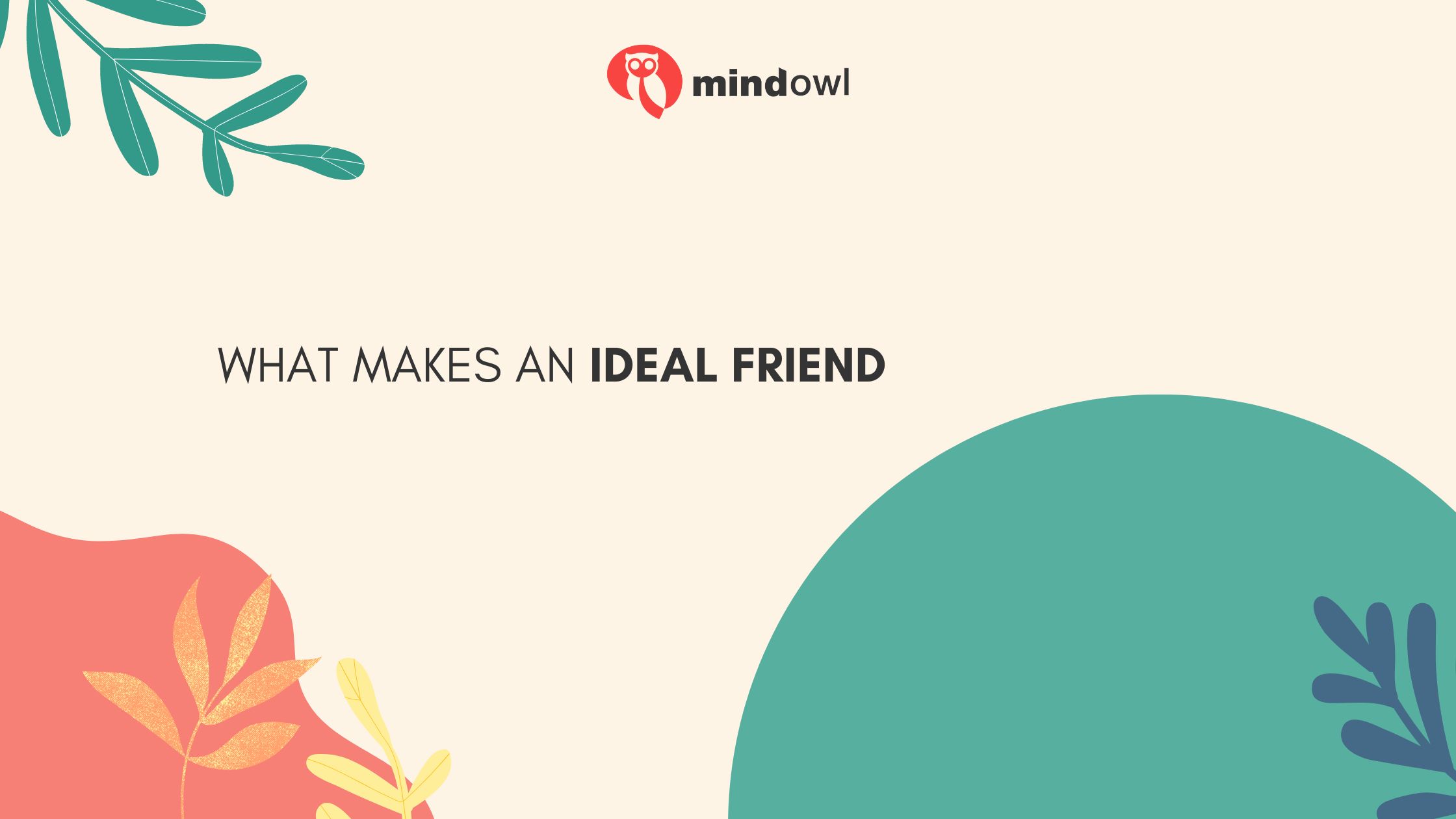
Finding the perfect friend often seems like an elusive goal. Friends are a significant part of our lives, and their qualities can deeply influence our happiness and well-being. This blog aims to shed light on the characteristics of ideal friends, helping you understand what makes a friendship truly special.
Dive in to discover more about this intriguing exploration into the world of friendships!
Key Takeaways
- An ideal friend is trustworthy, dependable, and keeps secrets safe.
- They are good listeners and communicators, showing genuine interest in others.
- Ideal friends are supportive and empathetic, standing by you through good times and bad.
- Respectful and non – judgmental, they accept you for who you are without criticism.
- Fun to be around, they bring joy and excitement to your life.
- Honest and loyal, they tell the truth and stay by your side through thick and thin.
- Good friends provide emotional support, increase happiness levels, share experiences,
Qualities of an Ideal Friend

An ideal friend is trustworthy, dependable, a good listener and communicator, supportive and empathetic, respectful and non-judgmental, fun to be around, honest,
and loyal.
Trustworthy and dependable
A true friend always tells the truth and keeps secrets safe. They stick by your side, no matter what happens. Good friends trust each other and can share things with each other without fear.
They keep promises and never let you down. Being there when needed is also a must in friendship. A good friend shows up on time, helps out when asked, and does not back out of their word.
When they say they will do something, they do it.
Good listener and communicator
A true friend is a good listener and communicator. They always make time to hear your stories, joys, and problems. You find them ready to listen any time you want to share something.
They do not just nod their heads but show they understand you. If there’s something they don’t quite know or understand, they will ask questions.
Good listening skills can turn chats into great moments of life. A perfect friend also knows how to talk well with others. They are open and honest about everything but do not gossip about us.
Their words give comfort during sorrow and joy in happiness.
Supportive and empathetic
A true friend is both supportive and empathetic. They stand by your side in good times and bad. They feel what you are going through as if it was their own sorrow or joy. This makes an ideal friend not just someone to have fun with, but also a shoulder to lean on when things get tough.
The best friends do not judge you for your feelings. Instead, they listen with all their heart and show care in each moment of life. They let you open up about anything without fear of gossip or doubt.
Respectful and non-judgmental
An ideal friend shows respect. They value our thoughts and views. This friend also does not judge us for who we are or what we do. We all have good points as well as bad ones. A true friend accepts these with a kind heart.
They may not agree with all our choices, yet they stand by us. No one should feel judged in a friendship! Being respectful and non-judgmental makes a great friend indeed!
Fun and enjoyable to be around
A good friend brings joy and fun. They turn dull times into happy moments. Always ready with a joke, they make you laugh. Being around them is never boring but exciting! They are the spark in any group.
With them, life feels like an adventure waiting to happen. Their energy spreads cheer and keeps boredom at bay.
Honest and loyal
An ideal friend always tells the truth. Honesty is key in a friendship. This trust makes you feel safe and well-loved. An honest friend won’t spill our secrets to others. They don’t just flatter us, but also tell us what we need to hear.
Loyalty is another big part of being a good friend. A loyal friend sticks by your side no matter what happens. Even in hard times, they stay with you. They never allow others to say bad things about us when we’re not there to defend ourselves.
Importance of Good Friends

Good friends provide emotional support, increase our happiness and well-being, share experiences and memories, offer encouragement and motivation, and help us navigate challenges and difficult times.
Emotional support and understanding
Good friends give the gift of emotional support. They are there for you in both happy and sad times. This is what makes them a great friend. If you feel bad, they help lift your spirits up.
You never feel alone when you have a true friend by your side. Even if they can’t fix all problems, their understanding helps a lot. They hear what you say and how you feel then offer comfort and care to help deal with sorrow or stress.
Increased happiness and well-being
Having good friends can greatly increase our happiness and well-being. Studies have shown that prioritizing friendships and having strong social connections are associated with numerous health benefits.
Friendships provide emotional support, understanding, and a sense of belonging, which contribute to our overall happiness. Spending time with friends can also help us relax, reduce stress levels, and improve our mental well-being.
In fact, research has found that people who have close friendships are happier and tend to live longer than those who lack strong social connections. So it’s important to nurture and prioritize our friendships for the sake of our own happiness and well-being.
Shared experiences and memories
Shared experiences and memories are an essential part of any strong friendship. When we have mutual memories with our friends, it creates a deeper connection and strengthens our bond.
Research conducted by the Department of Experimental Psychology at the University of Oxford has shown that shared interests and meaningful interactions play a significant role in building closer relationships.
These shared experiences can be big or small – from going on adventures together to simply laughing over inside jokes. These moments hold great importance in shaping who we become and creating lasting memories.
Encouragement and motivation
Having friends who provide encouragement and motivation is incredibly important. True friends are there to support us, uplift our spirits, and believe in our abilities. When we’re feeling down or facing challenges, they offer words of encouragement to help us keep going.
They motivate us to push through difficult times and remind us of our strengths. Good friends can be a source of inspiration, cheering us on as we pursue our dreams and goals. Their belief in us can boost our confidence and give us the motivation we need to achieve success.
With their support, we feel more capable and motivated to overcome obstacles and reach for the stars.
Helping to navigate challenges and difficult times
Good friends play a crucial role in helping us navigate challenges and difficult times. They provide support, understanding, and empathy when we need it most. Whether it’s a serious illness or a personal problem, having supportive friendships makes us feel less alone.
Research shows that good friends can prevent isolation and loneliness, which are common during tough situations. They offer a listening ear, practical advice, and encouragement to help us cope with whatever life throws at us.
Having someone by our side who truly cares can make all the difference in overcoming difficulties and finding strength within ourselves.
How to Be an Ideal Friend
Be present and available to your friends, showing genuine interest and concern for their well-being.
Be present and available
A good friend is someone who is present and available. This means they are there for you when you need them, both physically and emotionally. They make an effort to spend time with you and really listen to what you have to say.
Good friends who are present and available offer emotional support and make us feel loved and connected. They don’t just say they care, but they show it through their actions. Being present and available as a friend is linked to improved mental health because it helps us feel supported and understood.
So, if you want to be an ideal friend, make sure you are present and available for the people in your life.
Show genuine interest and concern
A good friend is someone who genuinely cares about you and shows it through their actions. They take the time to listen to your worries, joys, and everything in between. They ask you how you’re doing and really want to know the answer.
A true friend is there for you when you’re feeling down or going through a tough time, offering support and encouragement. They celebrate your successes with genuine happiness and don’t try to prove how much better they are than you.
Showing genuine interest and concern is an essential quality of an ideal friend because it creates a strong bond based on trust, empathy, and understanding.
Respect boundaries and confidentiality
Respecting boundaries and confidentiality is a crucial aspect of being an ideal friend. It means understanding and honoring the limits that your friends set for themselves, whether it’s about personal space, time alone, or privacy.
By respecting these boundaries, you show your friends that you value their needs and feelings. Additionally, maintaining confidentiality is essential in building trust within friendships.
It means keeping their secrets and not sharing private information without permission. When you respect boundaries and confidentiality, you create a safe and trustworthy environment where your friends feel comfortable opening up to you.
Communicate openly and honestly
Open and honest communication is a crucial aspect of being an ideal friend. It means expressing your thoughts and feelings openly, without hiding anything or pretending to be someone you’re not.
It also involves actively listening to your friend’s thoughts and emotions, offering them a safe space to share their concerns and joys. Being open and honest in your communication helps build trust, deepen the bond between friends, and allows for better understanding.
Additionally, it shows that you genuinely care about your friend’s well-being and are willing to support them through both good times and bad. Honest communication lays the foundation for a strong friendship based on mutual respect, empathy, and trustworthiness.
Offer support and encouragement
Good friends are always there to offer support and encouragement. They listen to us when we’re feeling down and provide a shoulder to lean on. They offer words of encouragement and help boost our confidence.
When we’re facing challenges, they believe in us and motivate us to keep going. Good friends understand the importance of being supportive during both good times and bad times. They celebrate our achievements with genuine happiness and lend a helping hand when things get tough.
Their support and encouragement make us feel valued and loved, which boosts our overall well-being.
Being supportive also means showing empathy towards our friends’ struggles and offering them a safe space to express their emotions without judgment or criticism. It’s about being understanding, compassionate, and actively listening when they need someone to talk to.
A simple act of kindness or an encouraging word can go a long way in making someone feel supported and uplifted. Good friends also remember the details about what matters most to us, whether it’s remembering an important event or checking in on how we’re doing after something significant happens in our lives.
When a friend encounters setbacks or hardships, providing care and support can bring them strength and courage to face challenges. One way to offer support is to create personalised stickers with inspirational and encouraging messages and give them to friends to display and feel supported.
If you find that idea appealing, you can create custom stickers at CustomSticker.com.
Make time for regular interaction and connection
To be an ideal friend, it’s important to make time for regular interaction and connection. Spending quality time with friends is crucial for nurturing the relationship and maintaining a strong bond.
Regular interaction allows you to catch up, share experiences, and support each other through both good times and bad. It’s through these connections that we feel understood, valued, and cared for.
Research has shown that spending time with friends contributes to better physical and mental health, increases happiness levels, and provides emotional support during challenging times.
Signs of a Bad Friend
A bad friend can be identified through their lack of trustworthiness or reliability, constant negativity or criticism, self-centeredness and lack of empathy, betrayal or dishonesty, and a lack of effort or investment in the friendship.
Check out the blog to learn more about identifying signs of a bad friend and how to build healthy friendships.
Lack of trustworthiness or reliability
A bad friend lacks trustworthiness and reliability. They may break promises, cancel plans often, or betray your confidence by sharing your secrets with others. Trust is important in any friendship, and when it’s broken, it can be difficult to repair.
A reliable friend shows up when they say they will and follows through on their commitments. They value your trust and keep your secrets safe. Without trustworthiness and reliability, a friendship can become strained and unstable.
Constant negativity or criticism
Having a friend who constantly criticizes or brings negativity into your life can be harmful to your well-being. It can make you feel down about yourself and affect your self-esteem.
Research has shown that negative social interactions can even lead to increased inflammation in the body, which is not good for your health. Constant criticism from a friend can also contribute to negative self-image and feelings of worthlessness.
It’s important to recognize these signs and distance yourself from toxic friendships that bring you down instead of lifting you up. Remember, a true friend should support and uplift you, not constantly criticize or bring negativity into your life.
Self-centeredness and lack of empathy
Self-centeredness and lack of empathy are detrimental qualities in a friend. When someone is self-centered, they tend to prioritize their own needs and desires above others’. This can lead to a lack of consideration for the feelings and experiences of others, resulting in a lack of empathy.
It’s important to have friends who can show empathy and understanding, as it allows for meaningful connections and support. Self-centered individuals may struggle to put themselves in others’ shoes or understand the impact of their actions on those around them.
This can create tension and strain relationships, as empathy is essential for building trust, respect, and emotional bonds with others. Lack of empathy not only affects friendships but also romantic relationships, as it hinders effective communication and mutual understanding between partners.
Betrayal or dishonesty
Betrayal or dishonesty is a significant red flag when it comes to identifying a bad friend. It’s hurtful and can deeply damage the trust that forms the foundation of any friendship.
Whether it’s sharing secrets with others or breaking promises, betrayal shows a lack of integrity and respect for the other person. In fact, research has shown that betrayal in relationships can be as damaging as infidelity.
When someone betrays your trust, it can make you question their motives and reliability. It’s important to recognize this sign of a bad friend and consider whether such a friendship is worth maintaining.
Lack of effort or investment in the friendship
Friendships require effort and investment from both parties in order to be fulfilling. When one person consistently shows a lack of interest or investment in the friendship, it can leave the other person feeling disconnected and unfulfilled.
A bad friend is someone who doesn’t make an effort to spend time together or maintain regular contact. This can lead to feelings of loneliness and isolation, as well as mental and emotional fatigue.
In a healthy friendship, both friends show affection and put effort into the relationship. However, if only one person is constantly putting in the effort while the other remains indifferent or distant, it could be a sign of a bad friend.
Conclusion
In conclusion, an ideal friend is someone who is trustworthy, supportive, and understanding. They respect boundaries and make you feel comfortable being yourself. Being a good friend means showing genuine care and being there for each other in both good times and bad.
Ultimately, having an ideal friend brings happiness and enriches our lives with shared experiences and meaningful connections.
FAQs
1. What is an ideal friend like?
An ideal friend is someone who can be trusted, doesn’t just flatter you and is always open to sharing both the good times and bad.
2. What are the main traits of an ideal friendship?
The main traits of a true friendship include honesty, dependability, being able to confess your fears, not trying to prove how successful they are but showing that they care.
3. How do I become a better friend?
You become a better friend by taking steps like listening more than talking, being reliable and letting friends see your weaknesses more often than it’s comfortable to admit.
4. Why shouldn’t my friend spill my secrets?
A real friend won’t spill your secrets as trust plays an important role in friendships; hence you need friends who keep your shared stories safe.
5. Why does reciprocity matter in good friendships?
Reciprocity is vital because it allows each friend to feel valued – everyone wants their friends’ time and advice as well!
6.What’s the role of dependability for a perfect friendship?
Dependability has been identified as one of the most vital qualities in friendships since it helps build trust knowing that someone will be there when needed.
Q: What makes an ideal friend?
A: An ideal friend is someone who possesses the qualities of a good friend. They are understanding, trustworthy, supportive, and respectful. They are there for you in both good times and bad, and they won’t hesitate to lend a helping hand when needed.
Q: How do I find a good friend?
A: To find a good friend, it’s important to look for someone who shares similar interests and values. You can meet potential friends through common activities, clubs, or classes. Building a strong friendship takes time and effort, so don’t rush the process. Trust your instincts and give the relationship time to develop.
Q: What are the important qualities of an ideal friend?
A: An ideal friend has several important qualities. They are trustworthy, loyal, and dependable. They listen without judgment and are empathetic towards your feelings. They respect your boundaries and are supportive of your goals and dreams. Overall, they are a positive influence in your life.
Q: What would an ideal friend be like?
A: An ideal friend would be someone who accepts you for who you are, flaws and all. They would be non-judgmental and understanding. They would be there to celebrate your successes and offer a shoulder to lean on during tough times. Essentially, an ideal friend would be a constant source of support and encouragement.
Q: How can I find good answers to possible objections from my ideal friend?
A: When discussing sensitive topics with your ideal friend, it’s important to approach the conversation with an open mind and a willingness to listen. Ask for their perspective and try to understand where they’re coming from. Be honest and genuine in your responses. By fostering open communication, you can find good answers to any objections that may arise.
Q: What makes a good friendship?
A: A good friendship is based on mutual trust, respect, and support. It is a two-way street where both parties give and take. It is built on open and honest communication, where both friends feel comfortable expressing their thoughts and feelings. A good friendship brings joy, companionship, and a sense of belonging to both individuals involved.
Q: How can I find a good essay sample on the topic of ideal friendship?
A: To find a good essay sample on the topic of ideal friendship, you can start by doing an online search. Look for reputable websites or educational platforms that offer quality essays on this subject. Additionally, you can reach out to your teachers or professors for recommended readings or resources.
Q: What are some tips to help me become a better friend?
A: To become a better friend, it’s important to practice active listening. Show genuine interest in your friend’s life and experiences. Be supportive and offer words of encouragement when needed. Respect their boundaries and be understanding of their needs. Additionally, make an effort to spend quality time together and create lasting memories.
Q: What are the 13 essential traits of a good friend?
A: The 13 essential traits of a good friend include trustworthiness, loyalty, honesty, generosity, empathy, good communication skills, reliability, flexibility, sense of humor, positive attitude, willingness to listen, supportiveness, and non-judgmental nature. These traits contribute to a strong and lasting friendship.
Q: How can friends who won’t spill my secrets be found?
A: To find friends who won’t spill your secrets, it’s important to observe their behavior towards others. Look for friends who are trustworthy and keep their word. Additionally, consider their communication style. If they respect your privacy and avoid gossiping, it’s a positive indicator that they won’t betray your trust.
MindOwl Founder – My own struggles in life have led me to this path of understanding the human condition. I graduated with a bachelor’s degree in philosophy before completing a master’s degree in psychology at Regent’s University London. I then completed a postgraduate diploma in philosophical counselling before being trained in ACT (Acceptance and commitment therapy).
I’ve spent the last eight years studying the encounter of meditative practices with modern psychology.

